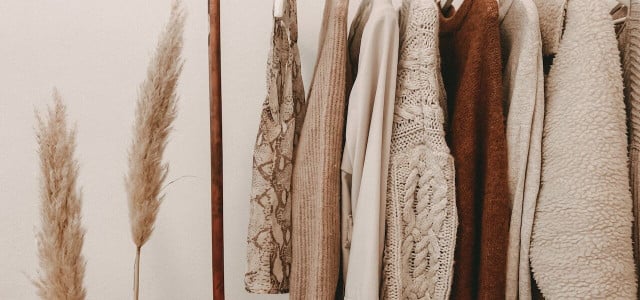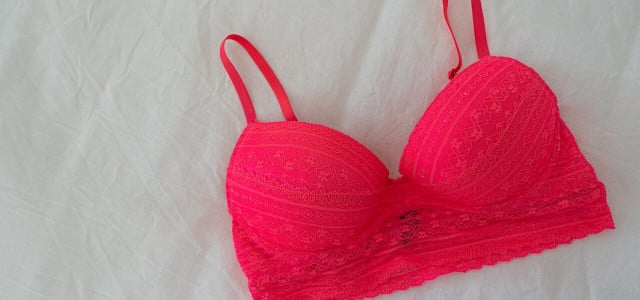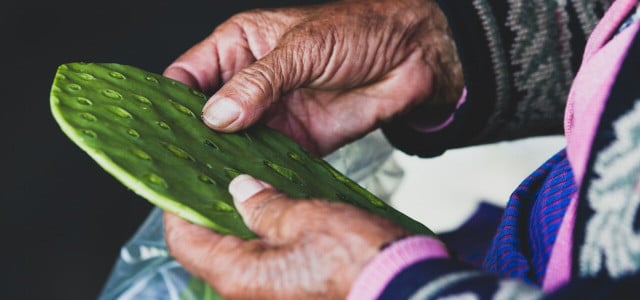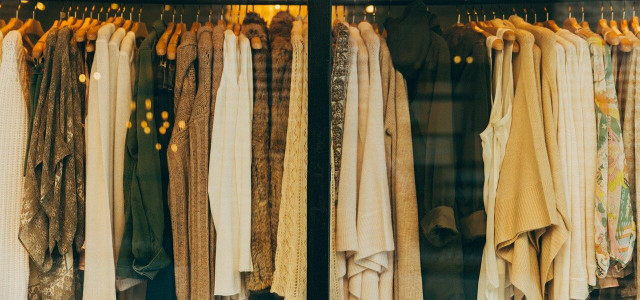Slow fashion brands lead the way toward a more sustainable future in fashion. Luckily, these fantastic American labels make buying slow fashion easy.
As consumers begin to learn more about fashion’s environmental impact, they are increasingly seeking out sustainable and ethical options. Slow fashion brands are leading the way in this movement, prioritizing eco-friendly practices and creating timeless, long-lasting pieces. Ready to be introduced to seven American slow fashion brands that are redefining sustainable style? Let’s get started.
What Is Slow Fashion?
Slow fashion is a movement that encourages consumers to choose high-quality, sustainable clothing over fast fashion, which prioritizes low cost and mass production. As the name suggests, it was only born as a countermovement to fast fashion and aims at valuing clothing more.
Fast fashion made consuming trends accessible to the masses for the first time. Brands like H&M or Zara started copying trends seen on luxury brands’ catwalks and produced these clothes as fast as possible (hence the name) – often through the use of cheap, synthetic materials and by exploiting their workers. Now we’ve reached a point where the average American throws away 75 pounds of textiles and clothing a year. This is exactly why the slow fashion movement promotes a minimalist wardrobe rather than buying into every trend and throwing away garments after just a couple of wears.
Slow fashion brands focus on ethical and eco-friendly practices, including fair labor practices, sustainable materials, and responsible production processes. Oftentimes, they even hold third-party certifications such as Certified B Corporation for social and environmental commitments.
1. Christy Dawn
Christy Dawn is a sustainable fashion brand that creates vintage-inspired dresses and clothing. Their dresses are feminine and romantic and prioritize comfort and wearability. The brand uses deadstock fabrics, which are leftover fabrics from larger fashion houses that would otherwise go to waste. In a program called Farm-to-Closet, Christy Dawn works with farmers in India to replenish the soil through ancient practices of regeneration.
They focus on ethical production and worker well-being, with their entire production process taking place in Los Angeles. While they “only” ensure living wages for some of their workers, they do disclose their entire supply chain.
2. Eileen Fisher: A Well-Known Slow Fashion Brand
Eileen Fisher is a well-known name in the sustainable fashion world, having established the pioneering brand already in 1984. The company values creating ethical and eco-friendly clothing, using sustainable materials, and prioritizing worker well-being. They track most of their supply chain, have a science-based target to reduce emissions, and are on track to meet these targets. Their classic designs are timeless, perfect for a minimalist capsule wardrobe.
Their Renew program repurposes gently worn garments and turns them into new designs, trying to avoid them going to landfill. They state that we cannot undo the raw materials that have already been extracted, but we can make sure to use the resources we have as best as possible. They also installed a program called Waste No More where they repurpose textiles into artworks, wall hangings, acoustic panels, or decorative objects. They also offer a take-back program to recycle their own products. Eileen Fisher is known for their minimalist, timeless designs that stand the test of time.
Especially through their programs on circularity and their use of eco-friendly materials, they are a Certified B Corporation and hold the Bluesign certification for minimizing chemicals in textile production. One aspect to keep in mind if you’re passionate about animal welfare is that they do use animal products including silk, leather and exotic animal hair.
3. Amour Vert
Amour Vert‘s name translates to “green love,” and the locally producing brand certainly lives up to it. They prioritize sustainable materials, such as Tencel and organic cotton, and use low-impact dyes in their production processes. Amour Vert’s clothing is designed to be both fashionable and practical, with an emphasis on comfort and versatility. Their collections show effortless classics and some cute summer pieces.
Their initiative Tees for Trees promotes reforestation by planting one tree in North America for every t-shirt bought. Amour Vert also has a resale platform called ReAmour where they sell second-hand items. They use eco-friendly materials such as Tencel and their animal materials such as silk or wool hold crucial certifications like the Bluesign label or the Responsible Wool Standard. They have published a formal statement covering workers’ rights, however, they are yet to publish an official Code of Conduct stating they pay their workers a living wage.
4. Slow Fashion Brands: Reformation
Reformation has become a popular brand in recent years, known for its vintage-inspired designs and eco-friendly practices. The transparency around their sourcing and manufacturing processes and their use of sustainable materials such as Tencel or organic cotton particularly stand out. They even aim to use 100% recycled, regenerative, or renewable materials by 2025.
Reformation also offers extended sizing to promote inclusivity in the fashion industry which is unfortunately mostly unusual in slow fashion brands and thus a big advantage for the brand. Reformation’s clothing is trendy and stylish, while also being environmentally conscious, so as a consumer, you don’t have to decide between style and sustainability. They sell a wide variety of clothes from feminine bridesmaid dresses to wide jeans, linen sets, and strappy sandals.
Reformation is certified with the Global Organic Textile Standard, the Global Recycled Standard, and the Bluesign label. Generally speaking, this means they put special emphasis on using organic, non-toxic, and recycled materials.
5. Able
Able is a slow fashion brand that focuses on empowering women through ethical and sustainable practices. Their designs are modern and practical, with an emphasis on durability and functionality. They use some sustainable materials, such as recycled brass or deadstock fabrics, and reuse scraps from their clothing production to minimize waste. Prioritizing quality and longevity, they upcycle their leather products from discarded animal hides.
Their popular leather bags and accessories are made by women who have overcome difficult circumstances, such as homelessness or trafficking, which is a really holistic approach and promotes intersectional environmentalism. Able works on achieving its mission to improve social conditions and empower workers from disadvantaged communities.
6. Patagonia
Patagonia is a well-known outdoor clothing brand that produces sustainably with a myriad of eco-friendly or recycled materials. They use more sustainable materials than typical outerwear brands, such as recycled polyester and organic cotton, and prioritize transparency in their supply chain, paying living wages to some of their textile workers. Their social media channels don’t really promote their products, but rather the activism that is such an essential part of the brand.
Maybe you’ve heard that the founder transferred his ownership of Patagonia which is valued at $3 billion to a trust and a nonprofit organization to fight climate change and protect undeveloped land. Patagonia also gives 1% of its sales to environmental organizations and advocates for policy changes to protect the planet. Their clothing is designed for outdoor activities and durability, with an emphasis on function over fashion. They are a Certified B Corporation and hold the Bluesign and Fairtrade certifications.
7. Outerknown
Outerknown is a sustainable swimwear and clothing brand founded by professional surfer Kelly Slater. They produce consciously which shows in their commitment to recycling most of their offcuts and the use of materials such as organic cotton, hemp, recycled cotton, or responsible wool. They also work on limiting the use of water and chemicals during production. Through their resale platform Outerworn, they ensure that no Outerworn garment goes to waste and keep clothing in the loop.
They prioritize sustainable materials and ethical production, with a focus on transparency and fair labor practices that is even Fair Trade certified. Outerknown’s designs are inspired by surf culture and emphasize comfort and practicality. Outerknown also partners with organizations that focus on ocean conservation and protecting marine life.
Why Should You Support Slow Fashion Brands?
By supporting slow fashion, you can help to reduce waste, support garment workers, and minimize the environmental impact of the fashion industry. Additionally, slow fashion often incorporates cruelty-free practices, meaning that it avoids the use of animal products such as leather or wool in clothing production.
To identify and support slow fashion brands, consider researching company practices, investing in high-quality, long-lasting pieces, and sharing your discoveries with friends and family. By choosing to support slow fashion brands, you’re making a conscious decision to prevent waste and promote sustainability in the fashion industry.
Read more:
- Drowning in Plastic: Ocean Pollution & How to Stop It
- What Is Polyester Made of and Is It Ever Sustainable?
- Is ASOS Fast Fashion? Here’s What You Need to Know
- 8 Sustainable Activewear Brands for Your Next Workout
Do you like this post?










